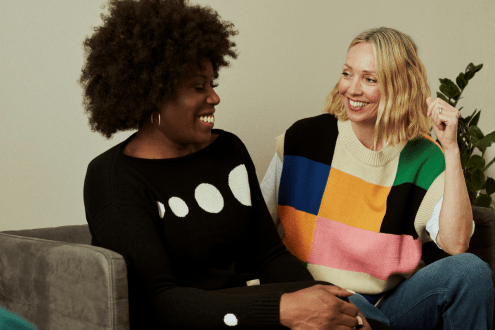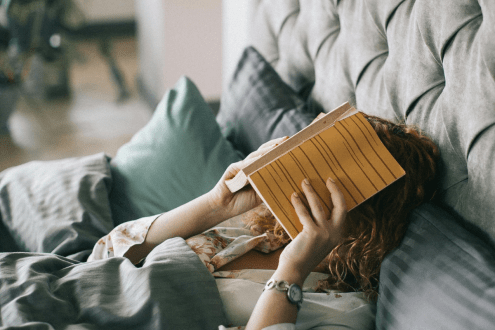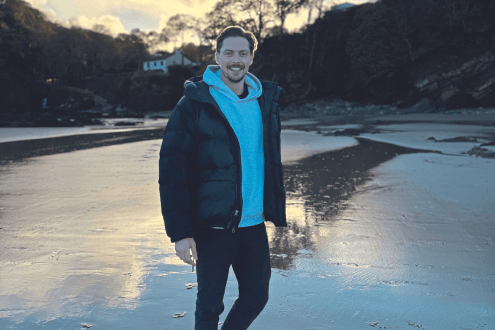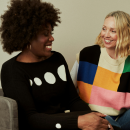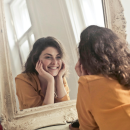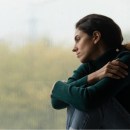The anti-cancer life
Eighteen years ago, at the age of 31, Psychologies columnist David Servan-Schreiber discovered he had cancer. As a doctor, he had access to invaluable information about natural approaches to prevent or help treat cancer. He shares what he has learned with Sarah Maber
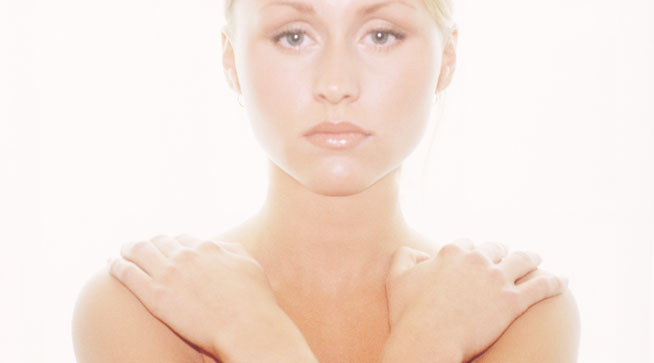
Psychologies: You fought a private battle with cancer, and the research you did for your personal recovery led to your book Anticancer: A New Way Of Life. Was it hard to go so public about your own illness?
David Sevan-Schreiber: I’m a physician and a neuroscientist, but that doesn’t stop you from getting cancer. For many years, I didn’t want to talk about my illness because I thought it might get in the way of practising my profession. I needed my patients to be able to lean on me. But one in two of us will develop the disease and one in three will die of it. Cancer is everybody’s problem, and what I went through is a very common journey. What my knowledge and profession allowed me to do was go deep into the scientific literature and learn about what each of us can do to prevent the disease from developing, or to strengthen our natural defences against it if we already have it. It took me many months of research to begin to understand how I could help my body.
What surprises did your research reveal?
One of the first things I learned was that everybody has cancer cells. Everybody. Like all living organisms, our bodies are making defective cells all the time. But what’s striking is that different cultures have very different rates of the same cancers. Japanese men don’t develop prostate cancer, but Western men do. Japanese women appear to be protected against breast cancer. This isn’t down to genetics because when Japanese move to the West, they get the same rate of breast and prostate cancer as we do. So if it’s our lifestyle that’s at fault, we have to ask what are we doing that helps those defective cells become diseases? And what can we change so that it doesn’t happen? It’s very simple. The World Cancer Research Fund released a report last year stating that the majority of cancers — 70 per cent — can be prevented by changes in behaviour. There’s not a single drug that can do that. It is up to each of us to use our body’s natural defences.
How does your approach fit with conventional treatment?
The body’s resources and its potential for dealing with disease are still too often underestimated by modern science. I received conventional treatment and the cancer went into remission. When I relapsed after that, I realised that, though conventional treatment was indispensable, it wasn’t enough. I needed to work with my own body as much as possible. I don’t have a magic recipe, but what I do know, from the scientific literature, is how much our body is able to fight the disease.
Why aren’t we given this advice by our doctors?
For a complex series of reasons. Doctors don’t practise prevention; they’re not equipped to do it, and they don’t have time. It’s not where the money and, therefore, research is. There’s no glamour in teaching people how to use their own bodies to help themselves, so there is much less research on what kind of fruit combinations can help prevent cancer than there is on a drug. One of the leading drugs in cancer treatment now costs £50,000 a year to treat someone. There’s no money in helping to treat cancer with broccoli and green tea. But it’s essential to use all the tools we have.
Cancer rates have been increasing since 1940. What are the trigger points in the way we live today?
We have to examine what has changed since World War II. Five key issues are:
• Cancer can grow only with sugar. The rates of sugar consumption have sky rocketed.
• We’ve changed the way we feed animals, which changes the balance of fatty acids in dairy products. Instead of eating grass, a rich source of the omega-3 fatty acids that help limit cancer growth, we feed animals with foods high in omega-6 fatty acids, which promote bodily inflammation, which in turn promotes cancer growth.
• We have introduced chemicals into our environment that did not exist before World War II. Many are established carcinogens that are no part of everyday habits.
• There has been a profound change in our relationship with physical activity. We know that exercise helps fight cancer, yet moving our bodies has disappeared from our lives.
• Our social network has been disrupted in the past 50 years. We now live further away from family, and that helps breed helplessness because we often face difficult challenges in life alone.
You isolate helplessness above all other emotions as being key in the development of cancer. Why?
The experience of helplessness and despair does seem to contribute to a physiology that is favourable to the growth of cancer. Most patients I’ve known remember a period of stress in the months or years preceding the diagnosis of their cancer. Usually, this stems from an ordeal that creates a feeling of helplessness. These situations don’t spark off cancer, but they can give it an opportunity to grow faster. The factors contributing to cancer are so numerous that no one should ever blame themselves for developing it. But we do have the opportunity to learn to live differently.
What’s the most important lesson you’ve taken away from your experience with cancer?
Dying is OK, it’s part of the course of life. We were potential energy in the universe that suddenly materialised into being, and we’re very lucky that happened. But we have to go back to being potential energy in the universe. What would be terrible is the sense that your life was wasted. When you’re suddenly reminded of the limit on your life, you start thinking about what you want most to make of it. You can’t let the outside world determine what’s important for you. You’re the only one who can make that call.
Photograph: John Foxx
